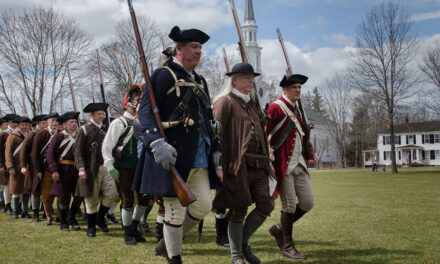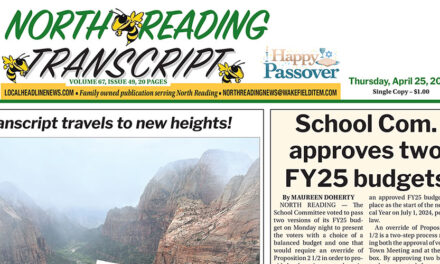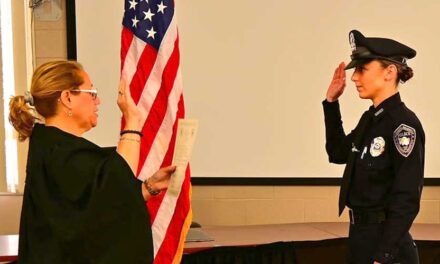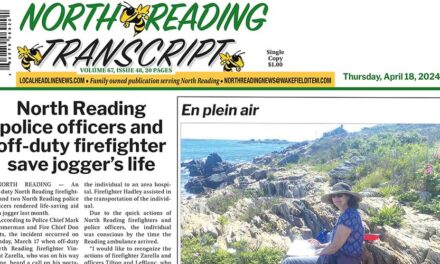Published in the September 20, 2018 edition
By JILLIAN STRING
NORTH READING — Director of Finance and Operations Michael Connelly presented the large capital five-year request summary, with particular focus on fiscal year 2020 (FY20), to School Committee members at their September 10 meeting.
“We have three major categories that we look at (for) our five-year capital plan. We have our vehicle needs, technology requests, our facilities requests, building and grounds needs, and what qualifies a request for a large capital is a total project or unit cost greater than $25,000, as well as something that would have a useful life of five years or more,” Connelly said.
FY19-approved projects included continuation of the one-to-one device program, instructional technology equipment, a new gymnasium floor for the Little School, and a multi-function activity vehicle.
According to Connelly, over the next three years the large capital requests will total $1,285,000, with $100,000 allotted for necessary vehicle replacements, $225,000 for technology, and $960,000 for anticipated facilities needs.
The request for FY20 will be roughly $335,000.
Technology requests
“A very important need that we need to continue to request as part of the plan for a number of years (are) the one-to-one computer devices. FY20 would represent year three of this program, where we provide each seventh grader with a Chromebook,” Connelly stated. “This is certainly a very important part of our curriculum at this point, and it’s certainly been our number one priority in terms of large capital requests.”
Connelly noted that another request under the technology category will be used to replace instructional equipment such as SMART boards, projectors, and iPads.
He also stated that the existing devices are over 10 years old and have reached the end of their useful life, however this request will most likely wait until FY21.
Vehicle needs
The FY20 vehicle request will be $45,000 to replace a special education van. The current van is 2007 model, has over 121,000 miles on it, and has also been used for athletic and extracurricular transportation, as needed.
“This is the oldest van in our fleet of vehicles. We currently operate a fleet of four special education vans. Three have been replaced within the last five years,” Connelly said.
The plan is to transfer the 2007 van to food services and take the 2005 food services van offline.
Facilities plans
“Because we are in a brand new middle school and high school building, the majority of our facilities needs are clearly located at the elementary school level over the next five years,” Connelly stated.
The FY20 projects include paving sections of the Little School parking lot, upgrading lighting systems to LED at the Little and Hood Schools, HVAC upgrades at the Little School, and Phase I (burglar and fire alarm systems) of the electronic systems upgrades at the Hood and Little Schools.
According to Connelly, there are a number of large facilities requests that will need to be completed over the next few years, however they have been spread out systematically to increase affordability for the town.
Committee Vice Chairman Scott Buckley noted that the state is doing better financially than anticipated and is offering some large capital reimbursements.
“Some of the bigger projects include the hope to try and get funding from state and federal reimbursements,” Buckley said. “Is there any merit to trying to prioritize some of those because it might take more than one year to approve?”
Connelly stated that there are a few requests that may meet the necessary criteria within the next few years. However, state programs can add additional overhead costs, for which the town would need time to plan.
The School Committee will vote to approve the large capital improvement plan at its September 24 meeting. Once approved, the plan will be submitted to the Capital Improvement Planning Committee for approval before being brought to the Board of Selectmen and Town Meeting.




